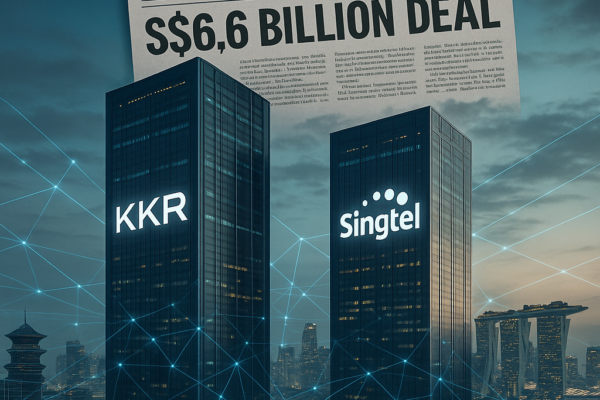Colombian billionaire Jaime Gilinski Bacal, Metro Bank’s controlling shareholder with a 52.87% stake, is actively exploring a sale of his position following unsolicited investor interest and a sustained share price recovery. This development comes two years after Gilinski orchestrated the bank’s £325 million recapitalization, which positioned him as the dominant stakeholder through his Spaldy Investments vehicle. Private equity firms Pollen Street Capital and BC Partners recently submitted a joint acquisition proposal that was rejected due to valuation disagreements, while market analysts suggest a potential merger with another lender represents a viable strategic alternative. The news triggered an immediate 3.7% share price surge, extending Metro Bank’s year-to-date gains to approximately 38% as of June 2025[1][2][13][14][16].
💼 Seasoned CorpDev / M&A / PE expertise
Shareholder Position and Strategic Considerations
Gilinski’s Controlling Stake
Jaime Gilinski Bacal solidified his position as Metro Bank’s pivotal stakeholder through Spaldy Investments, which holds 52.87% of the bank’s equity following the 2023 recapitalization. His involvement extends beyond ownership to active governance, where he serves as a non-executive director influencing strategic direction. The current exploration of exit options follows a significant rebound in Metro Bank’s market valuation, creating an opportune moment for capital realization. Gilinski’s openness to divestment reflects a calculated assessment of market conditions rather than diminished confidence in the institution, with sources confirming multiple expressions of interest from institutional investors[2][3][14][17].
Historical Context of Ownership
The shareholder evolution at Metro Bank demonstrates how crisis-driven capital infusions can reshape ownership structures. Gilinski’s emergence as the majority investor occurred during the bank’s 2023 financial restructuring, when his £325 million capital injection stabilized the institution amid regulatory pressures. This intervention pattern mirrors other European banking scenarios, such as Franz Haniel & Cie’s strategic divestment of Metro AG retail stakes to Czech-Slovak investors in 2018, illustrating how pivotal shareholders often realign portfolios following successful turnarounds[5][8]. The current scenario differs fundamentally through its voluntary rather than distressed character, signaling institutional strength rather than weakness.
Transaction Dynamics and Market Response
Private Equity Engagement
Pollen Street Capital and BC Partners jointly approached Metro Bank with a formal acquisition proposal in recent weeks, envisioning a potential merger with their portfolio company Shawbrook Bank to create a strengthened challenger banking entity. The consortium withdrew its interest following the board’s rejection of their valuation methodology, highlighting the persistent gap between investor and management assessments of intrinsic worth. This development underscores the cautious approach private equity firms adopt toward UK banking assets, particularly given regulatory complexities surrounding banking licenses and capital requirements. The aborted transaction nevertheless confirms serious institutional interest in Metro Bank’s branch network and deposit franchise[3][14][17].
Equity Market Reaction
Market response to the stake-sale revelation manifested in immediate price appreciation, with Metro Bank shares rising 3.7% to 130.4p upon the news breaking, outperforming the FTSE midcap index. This positive momentum extends the bank’s remarkable 38% year-to-date recovery, significantly outpacing the broader financial sector. The valuation rebound since the 2023 recapitalization now provides Gilinski with viable exit economics, transforming Metro Bank from a restructuring candidate to a potential consolidation play. Trading patterns suggest investors anticipate either premium-accretive strategic alternatives or continued organic improvement under existing management[13][14][16].
Strategic Alternatives and Sector Implications
Potential Merger Pathways
Beyond outright sale scenarios, Gilinski is reportedly considering growth-oriented consolidation through merger with a complementary financial institution. Such a transaction would leverage Metro Bank’s physical branch network—a rarity among digital-first challenger banks—while potentially achieving material cost synergies. Industry analysts note that Metro’s distinctive retail presence could appeal to both traditional banks seeking digital transformation and fintechs desiring physical touchpoints. The merger pathway presents complex execution challenges, including cultural integration and systems harmonization, but offers potentially greater long-term value creation than immediate sale to financial sponsors[3][14].
Sector-Wide Consolidation Trends
Metro Bank’s situation occurs against a backdrop of accelerating consolidation in European challenger banking, driven by margin compression and escalating technology investments. The UK market has witnessed increasing private equity involvement in financial services, with firms like Cerberus acquiring non-core banking assets from major institutions. Successful precedents include Virgin Money’s acquisition by CYBG, which created the UK’s sixth-largest bank. Current regulatory attitudes appear more receptive to banking combinations that enhance systemic stability, particularly when involving well-capitalized acquirers. This environment creates favorable conditions for Metro Bank’s strategic options[3][14][17].
Valuation Framework and Historical Benchmarks
Recapitalization to Recovery
The £325 million 2023 equity injection represented a critical inflection point, transitioning Metro Bank from existential threat to stabilized institution. Gilinski’s recapitalization terms—executed when shares traded at distressed levels—have generated substantial unrealized gains through the subsequent 38% share price appreciation. This recovery trajectory mirrors broader European banking sector revaluation but exceeds peer performance due to Metro’s unique operational improvements. Current valuation debates center on whether the bank merits premium pricing as a consolidation target or should trade at par with mid-cap banking peers lacking strategic optionality[1][2][13].
Comparative Transaction Analysis
Recent UK banking transactions provide relevant valuation benchmarks, including the 2018 CYBG-Virgin Money combination at 1.2x tangible book value and Shawbrook’s 2017 take-private at 1.8x book value. Applying these multiples to Metro Bank’s tangible equity suggests a potential valuation range between £400-£600 million for the entire institution, implying Gilinski’s stake could command £210-£320 million. The rejected private equity offer likely anchored toward the lower end of this spectrum, while management’s resistance suggests confidence in achieving premium valuation through either operational improvements or competitive sale processes[3][14].
Broader Market Implications
Investor Sentiment Indicators
The market’s enthusiastic response to potential ownership changes signals renewed confidence in the challenger banking model after years of skepticism. Metro Bank’s situation demonstrates how specialized institutions with differentiated offerings can transition from restructuring candidates to desirable assets. This sentiment shift may catalyze further private equity interest in UK financial services, particularly for institutions with strong deposit franchises. The transaction also highlights how activist investors like Gilinski can create value through both crisis intervention and timely exit execution, potentially encouraging similar investments in undervalued financial institutions[13][16][17].
Regulatory Considerations
Any ownership transition involving a significant banking stake requires rigorous regulatory review by the Prudential Regulation Authority (PRA). The PRA’s assessment would scrutinize the acquirer’s capital strength, governance capabilities, and long-term commitment to prudent banking practices. Historical precedents suggest regulators favor well-capitalized financial institutions over pure financial sponsors as acquirers, though recent policy statements indicate openness to private equity ownership provided stability safeguards are implemented. A merger scenario might encounter smoother regulatory approval than private equity acquisition, particularly if combining two established banking entities[3][14].
Conclusion and Forward Perspectives
The exploration of strategic alternatives for Metro Bank’s controlling stake represents a natural evolution following successful stabilization, with Jaime Gilinski Bacal positioned to capitalize on both operational improvements and renewed sector interest. The rejected private equity bid and potential merger pathways illustrate the valuation tension between immediate monetization and long-term value creation. Market response confirms investor confidence in Metro Bank’s strategic positioning, while sector-wide consolidation trends suggest multiple credible exit avenues. For stakeholders, the optimal outcome likely balances Gilinski’s exit requirements with preservation of the bank’s unique market position, whether through premium-accretive sale, value-enhancing merger, or continued independent execution supported by new investors. The resolution will provide critical insights into private equity’s evolving role in European banking and valuation methodologies for post-restructuring financial institutions[1][2][3][14][17].
Sources
https://www.investing.com/news/stock-market-news/metro-banks-biggest-shareholder-considers-selling-stake--reuters-93CH-4104073, https://www.investing.com/news/stock-market-news/exclusivemetros-biggest-shareholder-open-to-selling-stake-sources-say-4104057, https://www.marketscreener.com/quote/stock/METRO-BANK-HOLDINGS-PLC-152582897/news/Metro-s-Biggest-Shareholder-Reportedly-Open-to-Selling-Stake-50315128/, https://reports.metroag.de/annual-report/2018-2019/to-our-shareholders/metro-share/shareholder-structure.html, https://www.pymnts.com/cpi-posts/germany-haniel-gets-antitrust-clearance-for-metro-sale/, https://das.nebraska.gov/materiel/purchasing/contracts/pdfs/88073(o4)awd.pdf, https://www.datainsightsmarket.com/news/article/rekha-jhunjhunwala-sells-metro-brands-stake-what-it-means-47860, https://reports.metroag.de/annual-report/2020-2021/to-our-shareholders/metro-share/shareholder-structure.html, https://www.annualreports.com/HostedData/AnnualReportArchive/m/OTC_MLRYY_2019.pdf, https://investors.worldline.com/content/dam/investors-worldline-com/assets/documents/ingenico/financial-documentation/registration-docs/20150323-registration-document-ingenico-group.pdf, https://www.eib.org/files/efs/economic_investment_report_2019_en.pdf, https://swooped.co/remote-job/web-developer/, https://www.sahmcapital.com/news/content/buzz-uks-metro-bank-rises-as-reuters-reports-largest-shareholder-open-to-exiting-2025-06-20, https://www.sharecast.com/news/news-and-announcements/metro-banks-biggest-shareholder-open-to-selling-stake---report--20071576.html, https://www.streetinsider.com/news.php?id=24957627&classic=1, https://www.tradingview.com/news/reuters.com,2025:newsml_L4N3SN0XV:0-uk-s-metro-bank-rises-as-reuters-reports-largest-shareholder-open-to-exiting/, https://www.tradingview.com/news/reuters.com,2025:newsml_L8N3SL1DT:0-metro-s-biggest-shareholder-open-to-selling-stake-sources-say/





